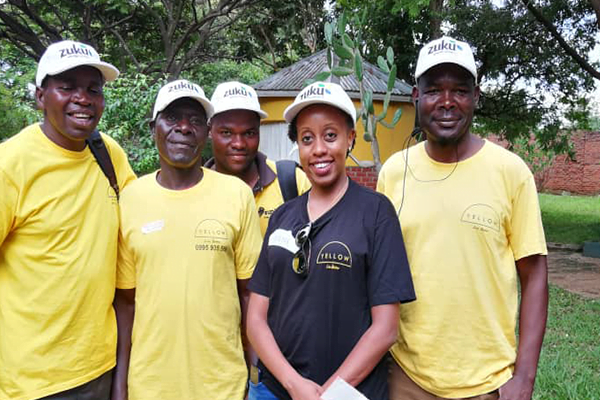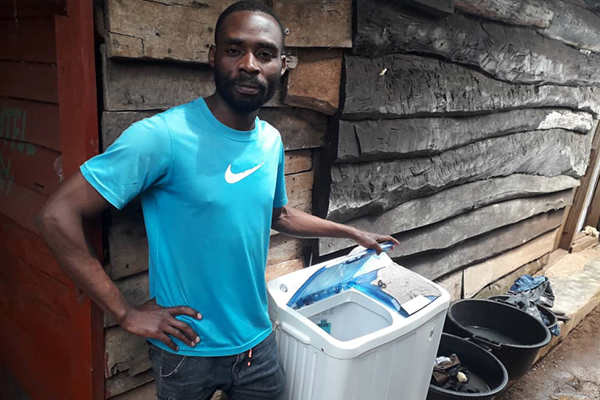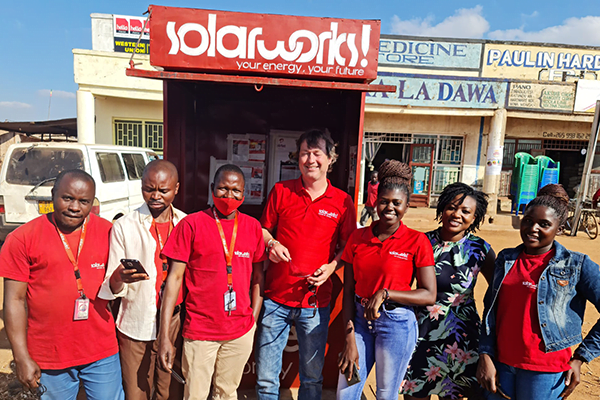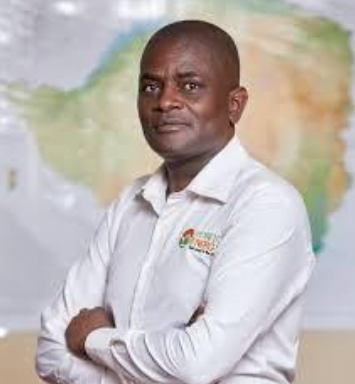
What does Zonful do?
Zonful is currently a PAYGo distributor of solar home systems in Zimbabwe that was created by William Ponela to bring access to off-grid households, especially in rural areas in Zimbabwe. This ties in directly to the founder’s personal experience growing up in an off-grid community in Zimbabwe.
I grew up in a rural area. I experienced urban life for the first time when studying engineering at University. My family wanted me to improve the water and energy situation in our community. My focus is to address those painpoints.
How did EEP support Zonful?
The objective of the project with EEP was to reach 13,000 households. The EEP grant helps achieve this by piloting several new approaches to distribution for Zonful:
1. The set-up of “facilitation centres” which are containerised Zonful shops for demonstration of solar power usage: lighting, TV, productive use and cold storage. These centres are located within the target communities allowing Zonful staff to be in direct contact with their customers and help them manage usage and payments.
2. The improvement of logistics through the introduction of vans that act as a mobile sub-office and storage unit.
3. Advocacy for renewable energy in rural areas through demonstrations.
The project is still on-going, but its impact was immediate on Zonful.
We received a lot of support from EEP, especially on preparing to meet investors. There is indirect training too. When you are submitting the proposal, they require a lot of discipline and they help you improve. The proposal submission teaches you the discipline and management skills for the project.
We go to rural areas and we set up a TV in the middle of the bush and people get together to watch soccer. We do this so people get excited about what renewable energy can bring to them.
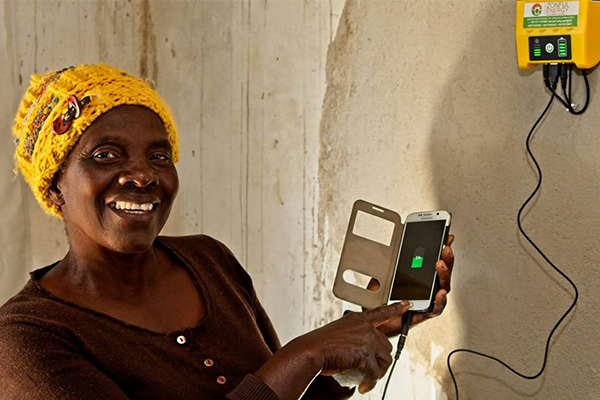
Additionally, being backed with EEP and meeting investors at EEP events has been a significant catalyst for financing for the company.
EEP came in and de-risked our business. Now we have been able to raise quite a bit of money. We have raised debt from the Off-Grid Energy Fund. If we had not got EEP, OGEF would not really have looked at us for debt finance. `{`…`}` I went to the banks before too. They said it was too risky. Now that EEP finances me, the banks are always at my door.
What can be done to better support local entrepreneurs?
William Ponela primarily mentions two reasons why there are not more energy entrepreneurs in Zimbabwe. The first has to do with the culture and education not fostering entrepreneurship:
We are taught to go to school, pass, get a job. There is no creativity. There is no room for failure either. If you fail once, they shun you forever. So, people prefer to get a job for security.
The second has to do with access to funding:
It’s even harder for local entrepreneurs to raise money. There are two forces behind this. You don’t have as much access to the right institutions and locally based banks have a very serious mindset. They don’t look at ideas but only at the security they can take.
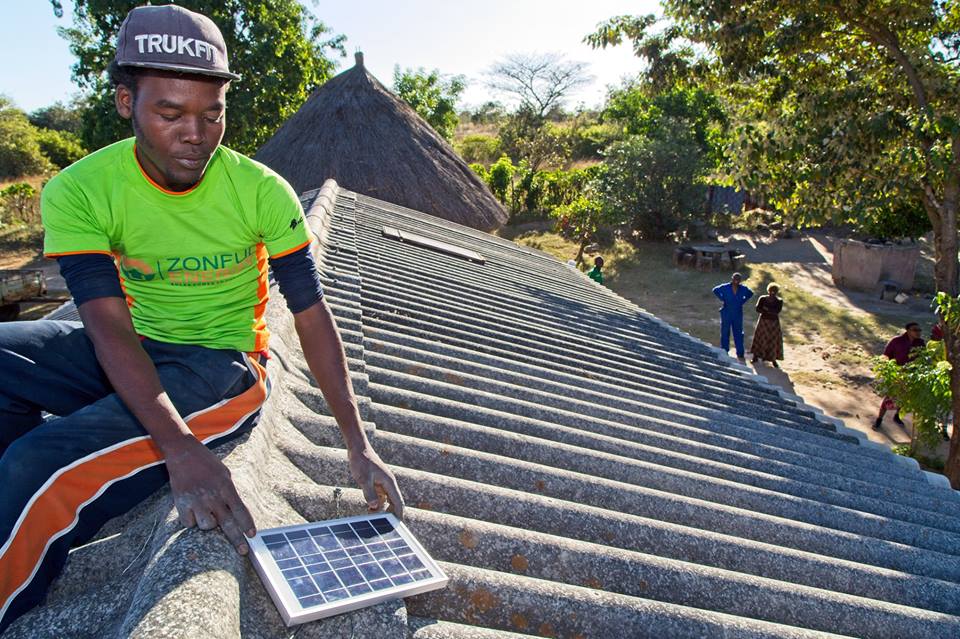
According to him, one way to support local entrepreneurship is to develop incubators to help groom local entrepreneurs and make them visible:
There are local entrepreneurs. Most of them have very disruptive ideas, but they are not easily identified. You need hubs to centralise them. In Africa, entrepreneurs are like footballers: they get discovered by chance. This is due to lack of exposure. They will not be discovered, and they will get a regular job. We need to groom local entrepreneurs and teach them discipline and patience.
Building an Inclusive Approach to Energy Access
Maya Khonje-Stewart, co-founder & COO of Yellow: SHS distributor in Malawi...
Island Mini-grid Powers Local Businesses
Local entreprenuers on Kitobo Island highlight opportunities from Absolute Energy's mini-grid...
Shifting to PAYGo for Solar Home Systems
Interview with SolarWorks!' CEO on pivoting to a PAYGo model for SHS in Mozambique and Malawi...



